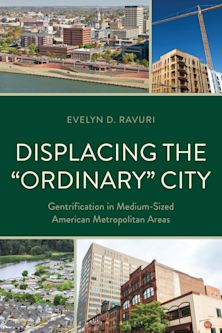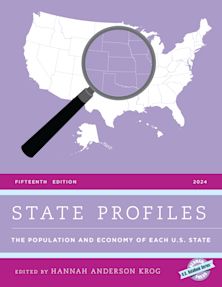Islands through Time
A Human and Ecological History of California's Northern Channel Islands
Islands through Time
A Human and Ecological History of California's Northern Channel Islands
This product is usually dispatched within 2-4 weeks
- Delivery and returns info
-
Flat rate of $10.00 for shipping anywhere in Australia
Description
Explore the remarkable history of one of the jewels of the US National Park system
California’s Northern Channel Islands, sometimes called the American Galápagos and one of the jewels of the US National Park system, are a located between 20 and 44 km off the southern California mainland coast. Celebrated as a trip back in time where tourists can capture glimpses of California prior to modern development, the islands are often portrayed as frozen moments in history where ecosystems developed in virtual isolation for tens of thousands of years. This could not, however, be further from the truth.
For at least 13,000 years, the Chumash and their ancestors occupied the Northern Channel Islands, leaving behind an archaeological record that is one of the longest and best preserved in the Americas. From ephemeral hunting and gathering camps to densely populated coastal villages and Euro-American and Chinese historical sites, archaeologists have studied the Channel Island environments and material culture records for over 100 years. They have pieced together a fascinating story of initial settlement by mobile hunter-gatherers to the development of one of the world’s most complex hunter-gatherer societies ever recorded, followed by the devastating effects of European contact and settlement. Likely arriving by boat along a “kelp highway,” Paleocoastal migrants found not four offshore islands, but a single super island, Santarosae. For millennia, the Chumash and their predecessors survived dramatic changes to their land- and seascapes, climatic fluctuations, and ever-evolving social and cultural systems.
Islands Through Time is the remarkable story of the human and ecological history of California’s Northern Channel Islands. We weave the tale of how the Chumash and their ancestors shaped and were shaped by their island homes. Their story is one of adaptation to shifting land- and seascapes, growing populations, fluctuating subsistence resources, and the innovation of new technologies, subsistence strategies, and socio-political systems. Islands Through Time demonstrates that to truly understand and preserve the Channel Islands National Park today, archaeology and deep history are critically important. The lessons of history can act as a guide for building sustainable strategies into the future. The resilience of the Chumash and Channel Island ecosystems provides a story of hope for a world increasingly threatened by climate change, declining biodiversity, and geopolitical instability.
Table of Contents
Acknowledgments
Preface
Chapter 1: Islands Through Time
Chapter 2: Assembling Santarosae
Chapter 3: First Americans, First Islanders
Chapter 4: Islands and Islanders in Transition
Chapter 5: The Island Chumash
Chapter 6: Islands in Upheaval
Chapter 7: Islands of Hope
End Notes
Glossary
Recommended Further Readings
About the Authors
Product details
| Published | 06 Nov 2021 |
|---|---|
| Format | Hardback |
| Edition | 1st |
| Extent | 216 |
| ISBN | 9781442278578 |
| Imprint | Rowman & Littlefield |
| Illustrations | 34 b/w photos; 13 textboxes |
| Dimensions | 237 x 162 mm |
| Publisher | Bloomsbury Publishing |
Reviews

ONLINE RESOURCES
Bloomsbury Collections
This book is available on Bloomsbury Collections where your library has access.


































